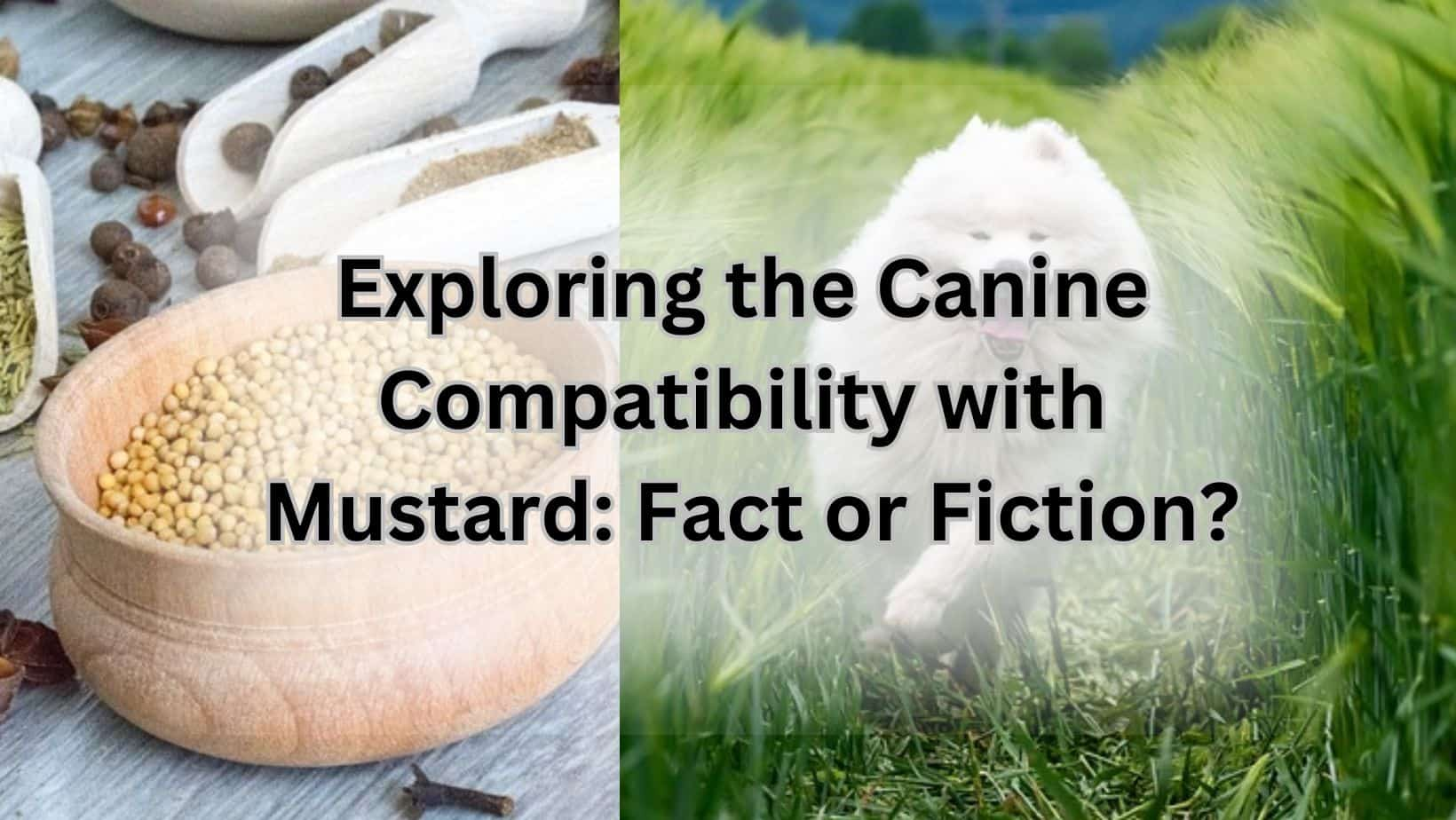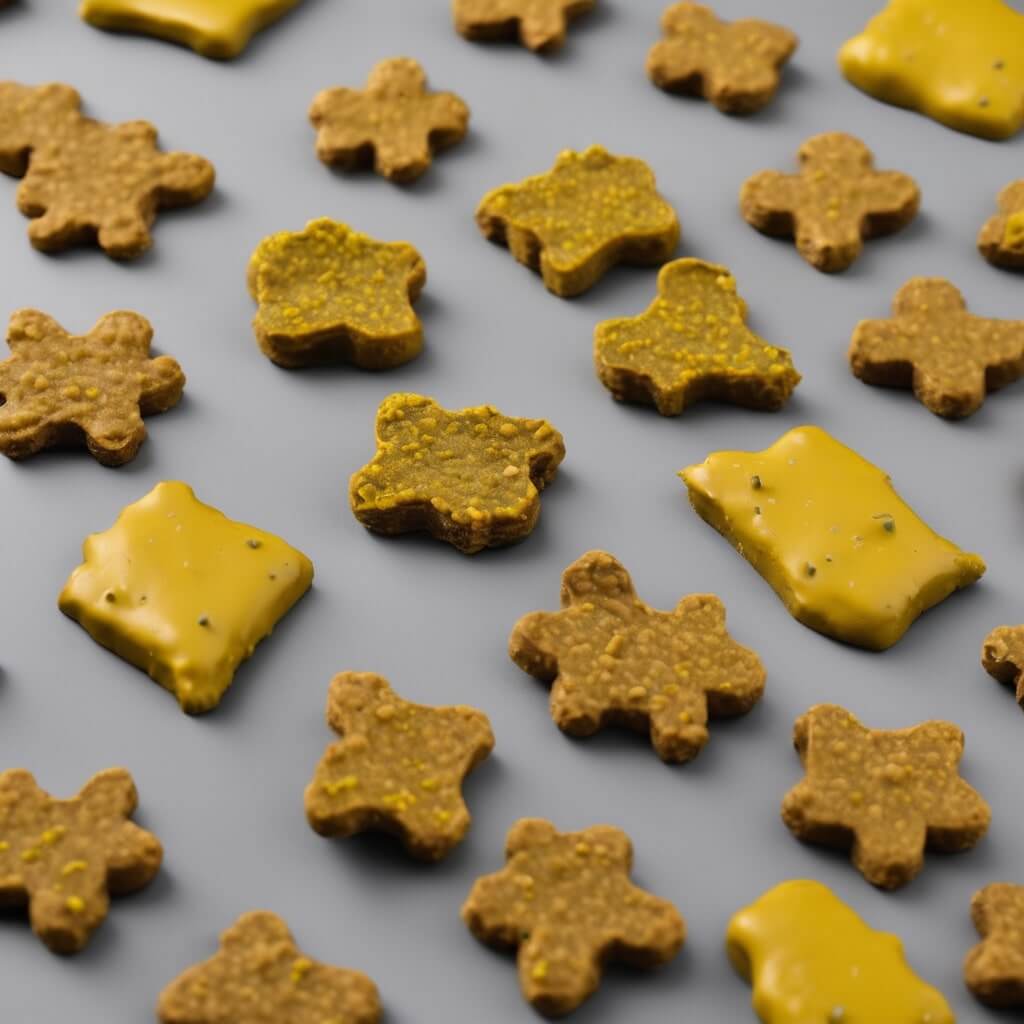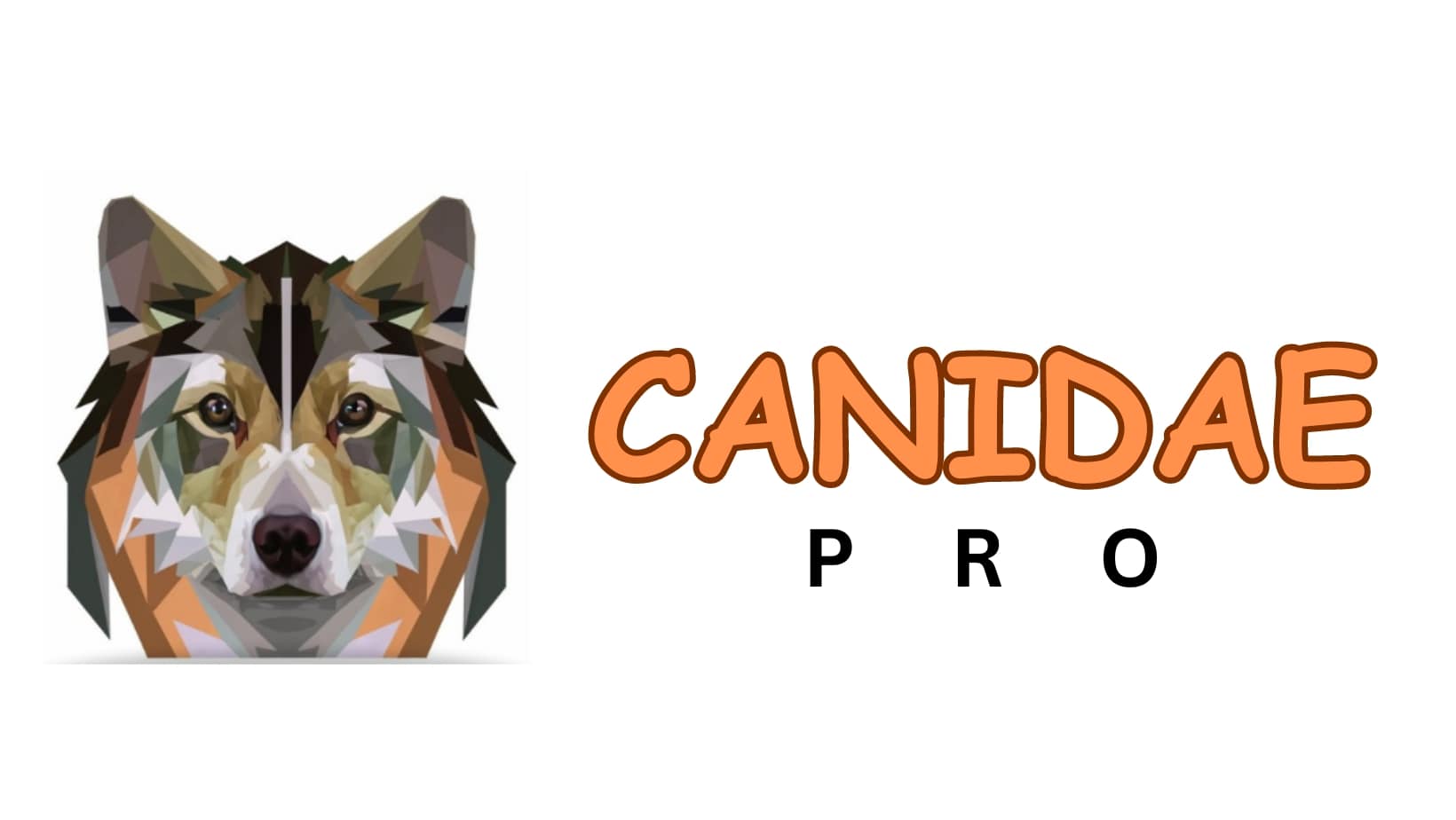Can Dogs Enjoy Mustard? Unraveling the Mustard Mystery!

Can Dogs Eat Mustard?
So, the burning question on every dog owner’s mind – can dogs have mustard? The short answer is, it’s best to avoid feeding mustard to your furry friends.
While a small amount of mustard may not be immediately harmful to dogs, it’s not recommended as a regular part of their diet.
Understanding the Risks
Picture this: your dog sneaks a lick of your hot dog covered in mustard. Harmless, right? Well, not quite. Mustard contains ingredients like onions, garlic, and spices that can be toxic to dogs in large quantities. These can cause gastrointestinal upset, irritation, or even more severe reactions. So, it’s best to play it safe and keep the mustard away from your pup’s plate.
Potential Health Benefits
But wait, isn’t mustard supposed to be healthy for humans? While mustard can offer health benefits to us, such as being low in calories and high in antioxidants, dogs have different dietary needs. They can thrive on a balanced diet of high-quality dog food specifically formulated for their nutritional requirements. So, it’s best to stick to dog-friendly treats and snacks.
Moderation is Key
Now, if your dog accidentally ingests a small amount of mustard, don’t panic. Monitor them for any signs of distress or discomfort, such as vomiting or diarrhea. If symptoms persist or worsen, it’s best to consult your vet for further advice. Remember, when it comes to your furry friend’s health, it’s always better to be safe than sorry.
While mustard may add flavor to your meals, it’s best to keep it out of your dog’s bowl. Opt for safe and nutritious treats that are specifically designed for canine consumption. Your pup will thank you for it in wagging tails and slobbery kisses!
Types of Mustard Safe for Dogs
Dijon Mustard
Can dogs enjoy the tangy taste of Dijon mustard without any worries? As a Canid Wild Life Lover with two decades of experience, I can confidently say that Dijon mustard is safe for dogs in moderation. This popular condiment adds a flavorful kick to your furry friend’s meal without causing any harm. Just remember, a little goes a long way!
Yellow Mustard
Is yellow mustard a paw-some choice for your canine companion? Absolutely! Yellow mustard is a milder option compared to its spicier counterparts, making it a safe choice for dogs. Whether you’re topping off a hot dog or mixing it into a homemade treat for your furry friend, yellow mustard is a tail-wagging addition to their diet.
Spicy Mustard Varieties
Can dogs handle the heat of spicy mustard varieties? While some dogs may enjoy a bit of spice, it’s essential to proceed with caution. Spicy mustard varieties can irritate your dog’s stomach, so it’s best to stick to milder options like Dijon or yellow mustard. Remember, your pup’s taste buds may not be as adventurous as yours!
When it comes to mustard, a little dab will do for your canine companion. Stick to milder varieties like Dijon and yellow mustard to add some flavor to your dog’s diet without any risks.
Just like us, dogs can enjoy a tasty treat now and then, but always prioritize their health and well-being. So, next time you’re whipping up a meal for your furry friend, feel free to add a dollop of mustard for that extra flavor boost!
Harmful Ingredients in Mustard for Dogs
1. Onions and Garlic
Can dogs have mustard? Well, let’s talk about the potential dangers lurking in this condiment. Onions and garlic are commonly used in mustard, and these ingredients can be toxic to dogs.
Both onions and garlic contain compounds that can cause damage to a dog’s red blood cells, leading to anemia. So, it’s best to steer clear of mustard that contains these ingredients to keep your furry friend safe and healthy.
2. Xylitol
Now, let’s address another concerning ingredient found in some mustard varieties – xylitol. This artificial sweetener is often used in sugar-free products, including certain mustards.
Xylitol is extremely toxic to dogs and can cause a rapid release of insulin, leading to a dangerous drop in blood sugar levels. In severe cases, xylitol ingestion can even be fatal for dogs. Therefore, it’s crucial to check the label and avoid any mustard that contains this harmful ingredient.
3. High Sodium Content
But wait, there’s more! Another potential issue with feeding mustard to your canine companion is its high sodium content. Excessive salt intake can lead to dehydration, electrolyte imbalances, and even sodium ion poisoning in dogs.
While a small amount of mustard may not pose a significant risk, it’s essential to monitor your dog’s overall salt intake, especially if they have underlying health conditions like kidney disease. So, when it comes to mustard, moderation is key to ensure your dog’s well-being.
While mustard can be a tasty condiment for humans, it’s crucial to be mindful of the ingredients and their potential risks when it comes to sharing this treat with your four-legged friend.
Remember, your dog’s health and safety should always come first, so choose canine-friendly alternatives to keep them wagging their tails in good health.
Risks of Feeding Mustard to Dogs

Digestive Upset
Ever wondered if your furry friend can handle the tangy kick of mustard? Well, let’s dive into the potential risks of feeding mustard to dogs. While mustard may seem harmless, it can actually cause digestive upset in our canine companions.
The spicy nature of mustard can irritate their stomach lining, leading to symptoms like vomiting, diarrhea, and abdominal pain. So, before you decide to share your hot dog with your pet, think twice about the consequences.
Allergic Reactions
Can dogs have mustard without experiencing any adverse effects? Not necessarily. Just like humans, dogs can also be allergic to certain foods, including mustard.
If your pooch has a mustard allergy, feeding them this condiment can trigger a range of symptoms, from itching and hives to more severe reactions like swelling and difficulty breathing. So, it’s crucial to pay attention to how your dog reacts to new foods and be cautious when introducing mustard into their diet.
Pancreatitis Risk
Is mustard worth the risk of potentially causing pancreatitis in your furry friend? Pancreatitis is a serious condition that occurs when the pancreas becomes inflamed, often due to the consumption of high-fat foods.
Mustard, especially varieties that are high in fat or contain additives like onions or garlic, can increase the risk of pancreatitis in dogs. This painful and potentially life-threatening condition requires immediate veterinary attention, so it’s best to steer clear of feeding mustard to your canine companion.
While mustard may add flavor to our meals, it’s important to consider the potential risks it poses to our four-legged friends. From digestive upset and allergic reactions to the risk of pancreatitis, feeding mustard to dogs can have serious consequences.
So, next time you reach for the mustard bottle, think twice about whether it’s worth jeopardizing your pet’s health. Remember, their well-being should always come first.
Safe Ways to Introduce Mustard to Dogs

1. Small Amounts as Occasional Treats
So, you’re wondering if your furry friend can enjoy a little mustard now and then, huh? Well, let me tell you, a dab of mustard as an occasional treat can add a flavorful twist to your dog’s diet.
Remember, moderation is key! Too much of a good thing can upset your pup’s tummy, so keep it small and infrequent. After all, we want those wagging tails to stay happy and healthy!
2. Mixing with Dog-Friendly Foods
Ever thought about mixing mustard with some dog-friendly foods to create a tasty concoction for your canine companion? It’s like creating a gourmet meal for your four-legged buddy! Just make sure the other ingredients are safe for dogs too. How about a dollop of mustard mixed with some plain cooked chicken or veggies? Your dog will be licking their chops in no time!
3. Consulting with a Veterinarian
Now, before you go all MasterChef in the kitchen with mustard and your pup’s dinner, it’s always wise to consult with a veterinarian first. They’re the real experts when it comes to your dog’s health and dietary needs.
They can provide guidance on whether mustard is a good fit for your dog based on their individual health and dietary requirements. Plus, it never hurts to get a professional opinion, right?
Mustard can be a fun and flavorful addition to your dog’s diet when introduced in small amounts and mixed with other dog-friendly foods.
Just remember to consult with a veterinarian before making any major changes to your pup’s menu. So, go ahead, get creative in the kitchen, and treat your furry friend to a mustardy delight! Your dog will thank you with plenty of tail wags and sloppy kisses.
Signs of Mustard Poisoning in Dogs

As a Canid Wildlife Lover with two decades of experience, I have seen the effects of mustard poisoning in dogs firsthand. It’s important to be aware of the signs so you can act quickly and help your furry friend.
Vomiting and Diarrhea: Is Your Pup Feeling Queasy?
Imagine your dog’s surprise when they taste a bit of mustard and start feeling sick. Vomiting and diarrhea are common symptoms of mustard poisoning in dogs. If you notice your pup getting sick after ingesting mustard, it’s crucial to monitor their symptoms and seek veterinary care if necessary.
Lethargy: Is Your Dog Acting Unusually Tired?
After a mustard mishap, your dog may start feeling lethargic and low on energy. This could be a sign that their body is trying to process the harmful effects of mustard. Keep an eye on your furry friend and make sure they get plenty of rest to recover from the ordeal.
Excessive Thirst: Is Your Pup Drinking More Than Usual?
One of the lesser-known symptoms of mustard poisoning in dogs is excessive thirst. If your dog is suddenly drinking a lot more water than usual, it could be a sign that something is not right. Make sure to provide them with plenty of fresh water and keep an eye on their drinking habits.
Remember, prevention is always better than cure when it comes to your dog’s health. Keep harmful foods like mustard out of reach and opt for safer alternatives to keep your furry friend happy and healthy.
Alternatives to Mustard for Dogs
Dog-Safe Condiments
Are you tired of giving your furry friend the same old boring treats? Why not spice things up with some dog-safe condiments that will have them begging for more?
From peanut butter to yogurt, there are plenty of delicious options that are safe and healthy for your canine companion. Just remember to avoid any condiments that are high in salt or sugar, as these can be harmful to your dog’s health.
Homemade Treats
Looking for a fun and creative way to spoil your pup? Why not whip up some homemade treats that are sure to get their tail wagging?
From pumpkin and peanut butter biscuits to apple and carrot muffins, the possibilities are endless when it comes to making delicious snacks for your four-legged friend. Plus, you’ll have the peace of mind knowing exactly what ingredients are going into your dog’s treats.
Commercial Dog Treats
Are you short on time but still want to treat your dog to something special? Don’t worry, there are plenty of commercial dog treats on the market that are both safe and tasty for your furry friend.
Look for treats that are made with high-quality ingredients and are free from any harmful additives. Your dog will thank you for the delicious snack, and you can feel good knowing you’re giving them something that’s good for them.
So, next time you’re thinking about giving your dog some mustard, why not try one of these alternatives instead? Your pup will thank you for the tasty treat, and you can rest easy knowing you’re keeping them safe and healthy. After all, a happy and healthy dog is a recipe for a happy and healthy life together!
Consulting a Veterinarian Before Feeding Mustard
Importance of Professional Advice
Have you ever wondered if mustard could be a tasty treat for your furry friend? Well, before you start slathering mustard on your dog’s food, it’s crucial to consult a veterinarian. The importance of seeking professional advice cannot be overstated when it comes to your dog’s health and diet.
Individual Dog’s Health Considerations
Do you know that each dog is unique and may have different dietary needs and sensitivities? Just like humans, dogs can have allergies or intolerances to certain foods.
Before introducing mustard into your dog’s diet, consider their individual health considerations. A quick chat with your vet can help determine if mustard is safe for your canine companion.
Customized Dietary Recommendations
Ever thought about how a personalized diet plan could benefit your dog’s overall health and well-being? Your veterinarian can provide customized dietary recommendations based on your dog’s age, breed, weight, and any existing health conditions.
When it comes to feeding mustard to your dog, a tailored approach is key to ensuring their nutritional needs are met without compromising their health.
Consulting a veterinarian before feeding mustard to your dog is essential for their safety and well-being. Remember, your furry friend’s health is a top priority, so always seek professional advice when introducing new foods into their diet.
Your veterinarian is your best ally in keeping your canine companion happy and healthy, so don’t hesitate to reach out for guidance.
Mustard in Commercial Dog Foods
Reading Ingredient Labels
Have you ever wondered what goes into your furry friend’s food? Well, when it comes to mustard in commercial dog foods, it’s essential to pay attention to the ingredient labels.
While mustard itself may not be harmful to dogs in small quantities, some dogs may have allergies or sensitivities to certain ingredients found in mustard-based products. Always read the labels carefully to ensure that your pup is getting a balanced and safe diet.
Mustard Extracts in Dog Products
Did you know that some dog products contain mustard extracts for flavoring? While this may add a tasty kick to your dog’s meal, it’s crucial to be mindful of the amount of mustard extracts present.
Too much of a good thing can sometimes be harmful, so moderation is key. If your dog enjoys products with mustard extracts, be sure to monitor their intake and watch out for any adverse reactions.
Regulatory Guidelines
Have you ever considered the regulatory guidelines surrounding mustard in commercial dog foods? The pet food industry is highly regulated to ensure the safety and quality of products.
When it comes to mustard, manufacturers must adhere to strict guidelines to ensure that the products are safe for consumption. By choosing reputable brands that follow these regulations, you can rest assured that your dog is getting the best possible nutrition without any unnecessary risks.
While mustard itself may not be harmful to dogs, it’s essential to be cautious when it comes to commercial dog foods containing mustard extracts. Always read the labels, monitor your dog’s intake, and choose products from trusted brands that follow regulatory guidelines. Your furry friend’s health and well-being should always come first, so make informed decisions when it comes to their diet.
Conclusion: Making Informed Decisions for Your Dog’s Diet
As a Canid Wild Life Lover with two decades of experience, I have learned the importance of balancing treats and a regular diet for our furry friends.
Prioritizing our dog’s health and safety should always be at the forefront of our minds when it comes to their nutrition. Being mindful of the ingredients in our dog’s food can make a significant difference in their overall well-being.
Balancing Treats and Regular Diet
Are you struggling to find the right balance between giving your dog treats and maintaining a healthy diet for them? It’s essential to remember that treats should complement their regular meals, not replace them entirely.
While it’s tempting to spoil our pups with tasty snacks, moderation is key to ensuring they receive all the necessary nutrients for optimal health.
Prioritizing Dog’s Health and Safety
When it comes to your dog’s diet, do you prioritize their health and safety above all else? As pet owners, it’s our responsibility to make informed decisions about what we feed our furry companions.
While mustard may seem harmless to us, it’s crucial to research and understand how certain foods can affect our dogs’ well-being before offering them as treats.
Being Mindful of Ingredients in Dog’s Food
Have you ever stopped to read the ingredients list on your dog’s food? Being mindful of what goes into their meals can have a significant impact on their overall health. Opting for natural and wholesome ingredients, free from harmful additives or preservatives, can help support your dog’s well-being and longevity.
By taking a thoughtful and informed approach to our dog’s diet, we can ensure they lead happy and healthy lives. Remember, our furry friends rely on us to make the best choices for them, so let’s prioritize their health and well-being every step of the way.

